The following is a list of recipients of the various awards, prizes, and honors presented during the 138th annual meeting of the American Historical Association on Friday, January 3, 2025, in the Sheraton New York’s Metropolitan Ballroom East.
2024 AWARDS FOR SCHOLARLY AND PROFESSIONAL DISTINCTION
AWARDS FOR SCHOLARLY DISTINCTION
Barbara J. Fields, Columbia University
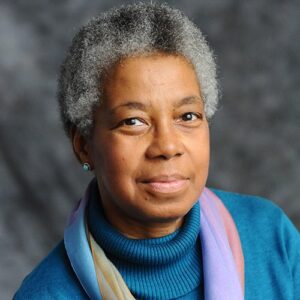
Barbara J. Fields
Barbara J. Fields, the William R. Shepherd Professor of History at Columbia University, is a preeminent historian of 19th-century American Southern and social history.
Fields’s numerous publications include “Ideology and Race in American History,” her incisive and well-known scholarly intervention published in Region, Race, and Reconstruction (1982), a volume honoring her mentor, C. Vann Woodward. A radical intervention in the early 1980s, it shredded conventional thinking about race as a concept and a force shaping American history. The article’s core thesis—that race is a product of history and not of nature—was a sharp critique of some of the major, celebrated historical work of that era. Its core themes would be elaborated further in Racecraft: The Soul of Inequality in American Life (2012), the acclaimed work Fields co-authored with her sister, Karen E. Fields, an anthropologist of West Africa.
In 1984, Fields published Slavery and Freedom on the Middle Ground: Maryland During the Nineteenth Century, which won the AHA’s John H. Dunning Prize and a special citation from the Association of Black Women Historians. This deeply empirical study of an understudied border slave state would elevate and reframe such core themes in the emerging treatments of Reconstruction as the transition from slavery to free labor and the class dimensions of post–Civil War developments. In addition to numerous other influential articles and essays, Fields’s body of scholarship includes Freedom: A Documentary History of Emancipation, 1861–1867, ser. 1, vol. 1, The Destruction of Slavery (1985), which won the Thomas Jefferson Prize; Free at Last: A Documentary History of Slavery, Freedom, and the Civil War (1992), which won the Lincoln Prize; and Slaves No More: Three Essays on Emancipation and the Civil War (1992), a co-authored and co-edited volume in the acclaimed Freedmen and Southern Society documentary history project based at the University of Maryland.
Fields’s numerous honors include an honorary doctorate from Bard College, the John D. and Catherine T. MacArthur Fellowship, the Award for Distinguished Literary Achievement from the Philolexian Society at Columbia University, a Presidential Award for Outstanding Teaching, and a Woodrow Wilson Center Fellowship. She is a long-standing member of the Advisory Committee for the Jimmy Carter National Historic Site and former president of the Southern Historical Association.
William Chester Jordan, Princeton University
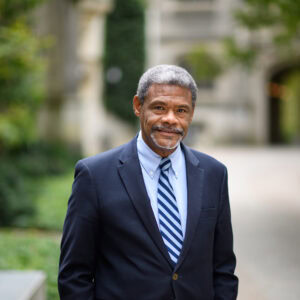
William Chester Jordan
William Chester Jordan is the Dayton-Stockton Professor of History, director of the Program in Medieval Studies, former director of the Humanities Council’s Program in Medieval Studies, former chair of the Department of History, and former executive director of the Shelby Cullom Davis Center for Historical Studies, all at Princeton University. Those titles testify to the exceptional quality and influence of his scholarship in medieval history and studies. He has been elected as a fellow of the Medieval Academy of America, the American Philosophical Society, and the American Academy of Arts and Sciences. He has served as the president of the American Catholic Historical Association and the Medieval Academy of America. On top of all this, he has received honorary degrees from his alma mater Ripon College and from Bard College, Catholic University of America, Harvard University, and Oxford University.
Among these many accomplishments is the long list of PhD students he has directed. The current count is 40, which probably makes him the principal trainer of medievalist graduate students in the United States.
He is especially known for his studies of the reign of Louis IX of France and the Crusades, manumission from servitude, medieval Jews, converts from Islam, monastic culture, medieval women, and rulership. His book The Great Famine: Northern Europe in the Early Fourteenth Century (1996) has likely brought him the most acclaim, leading to the award of the Haskins Medal of the Medieval Academy. In the book, he was especially adept at incorporating modern scientific findings into discussions of weather and the effects of hunger on human health. A reviewer in the principal journal for medievalists, Speculum, noted that “Jordan’s outstanding book is . . . ambitious because it considers every aspect of a very important subsistence crisis: physical, social, even mental. . . . In many respects Jordan’s book is an example of a historian’s finest achievement. The chosen subject is original; but above all, the author has taken every possible step to achieve a great historical study. The quantity and diversity of his sources, and the apparatus of more than fourteen hundred footnotes, are impressive. Furthermore, many of these notes go deeper than references: they are lessons in historical method. Finally, I wish to praise the great lucidity of Professor Jordan’s writing, which lends precision and credibility to his argument.”
Gabrielle Spiegel, the doyenne of medieval studies in the United States and former president of the AHA, reviewed in a prescient way Jordan’s first book, Louis IX and the Challenge of the Crusade (1979), noting that his decision to focus on the Crusade “serves brilliantly to highlight the main lineaments of Louis’s rule. . . . Indisputably, Professor Jordan’s work has brought new coherence and intelligibility to the holy king’s reign. He has successfully fulfilled his aim of providing a ‘satisfying synthetic history.’” This is very high praise for what was then a promising career, a career that has become a golden one.
Franklin W. Knight, Johns Hopkins University
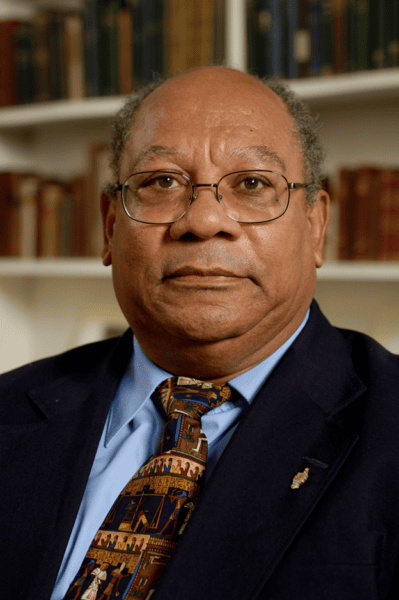
Franklin W. Knight
Franklin W. Knight is known for creativity, integrity, high standards, capacity to shape a field in enduring ways, and exemplary mentorship of both students and colleagues.
Born in Jamaica, Knight earned a BA in history from the University of the West Indies and a PhD in history from the University of Wisconsin. He taught at Stony Brook University, State University of New York, before joining Johns Hopkins University in 1973, only the second Black faculty member in the history of the university. Knight would go on to become the first Black faculty member to earn tenure at Hopkins in 1978.
Knight’s many monographs, edited volumes, and scholarly articles helped chart new directions in Latin American, Caribbean, Atlantic, and African diasporic history. As co-editor of the Johns Hopkins University Press series in Atlantic History and Culture, he ushered into print numerous key works in Atlantic history. He also worked to ensure the release of Walter Rodney’s posthumous published classic, A History of the Guyanese Working People, 1881–1905. Knight’s book on Cuban slavery set the standard of social/economic history; his synthesis of Caribbean history remains virtually unmatched.
Knight mentored graduate students not only at Hopkins but also at Howard University and Morgan State University, and postdoctoral fellows through the Ford Foundation program. He was director of the Program in Latin American Studies at Hopkins as well as the Center for Africana Studies. He is past president of the Latin American Studies Association, and was a founding member of the Asociación de Historiadores de América Latina y el Caribe, the Asociación de Historiadores Latinoamericanos, and the Asociación de Historia Económica del Caribe. He has been a frequent guest on news programs discussing Latin American and Caribbean history and contemporary politics and has served as a consultant to many television programs. Amid all this, he somehow found time to write a weekly column in one of Jamaica’s most important newspapers.
Franklin W. Knight’s work as a scholar and teacher has had deep and broad influence on what we know and think about a wide swath of the Atlantic world. He also has helped a stream of Black intellectuals to imagine a future history.
HONORARY FOREIGN MEMBER
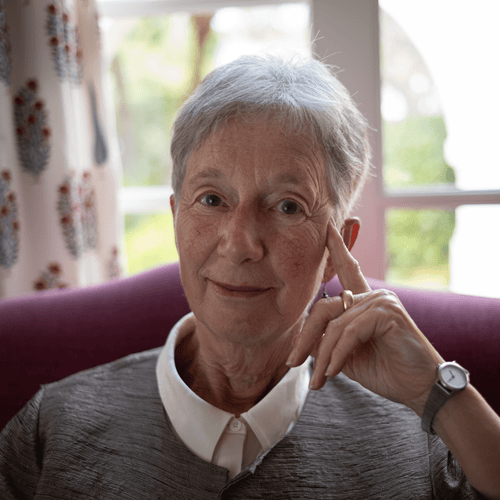
Catherine Hall
Catherine Hall, University College London
Catherine Hall, emerita professor of modern British social and cultural history at University College London, is a preeminent historian of Britain and its empire.
Hall’s most recent book, Lucky Valley: Edward Long and the History of Racial Capitalism (2024), joins an influential body of work that centers on the impact of empire on metropolitan and colonial life. It includes Family Fortunes: Men and Women of the English Middle Class, 1780–1850 (1987), co-authored with Leonore Davidoff; Civilising Subjects: Metropole and Colony in the English Imagination, 1830–1867 (2002), which won the AHA’s Morris D. Forkosch Prize; Macaulay and Son: Architects of Imperial Britain (2012); two co-edited volumes, Race, Nation and Empire: Making Histories, 1750 to the Present (2010) with Keith McClelland and At Home with the Empire: Metropolitan Culture and the Imperial World (2006) with Sonya O. Rose; and numerous articles and essays.
Hall also has been a leading figure in the fields of public history and digital scholarship with work that brought unprecedented public attention to the part Britain played in maintaining the institution of slavery and how it profited. From 2009 to 2012, Hall was principal investigator of the acclaimed Legacies of British Slave-Ownership project and, from 2013 to 2016, the Structure and Significance of British-Caribbean Slave-Ownership, 1763–1833. A major product of this research, based at the Centre for the Study of the Legacies of British Slavery, is the Legacies of British Slavery Database, a free, publicly accessible, and widely used database that is a critical resource for understanding the extent of slavery’s impact on the development of modern Britain. Legacies of British Slave-Ownership: Colonial Slavery and the Formation of Victorian Britain (2014), which Hall co-authored with four University College London colleagues, draws on this data.
Hall is the recipient of numerous honors. In 2021, she received the prestigious Leverhulme Medal and Prize, awarded by the British Academy in recognition of her particular contribution “in the fields of class, gender, empire, and postcolonial history” and her place “among the most methodologically innovative researchers in the fields of social and cultural history worldwide.” In 2021, she delivered the James Ford Special Lectures at Oxford University, inaugurated in 1896–97 and considered the most prestigious series at Oxford.
TROYER STEELE ANDERSON PRIZE

Chris McNickle
Chris McNickle
The AHA honors Chris McNickle in recognition of his role in transforming the Association’s investment and financial structures. As late as 2012, the AHA’s finances were overseen by a Finance Committee chair who often had no training in finance, money management, or accounting. Reforms in the early 2000s had brought professional expertise to advise on our investment practices, but still no one on the Council or Finance Committee had experience in the actual financial practices of a nonprofit.
McNickle brought to the table the unusual combination of a PhD in history and substantial published scholarship, along with a successful career in business and finance. As chair of a new investment committee, he oversaw revision and codification of our investment goals and policies and reoriented our relationships with portfolio managers at TIAA-CREF. He then helped the executive director define and develop a new Council position, a treasurer, who could professionalize the work of the Finance Committee and oversee the operations of the business office. For the first time, the AHA Council included someone with these important responsibilities essential to the efficient operation of any nonprofit.
McNickle’s influence has been wide and deep. Where once the AHA’s financial practices and policies were overseen by academics, they are now under the watchful eye of individuals who have appropriate experience. Both our current treasurer and our Investment Committee chair were recruited to those positions by McNickle, who left in 2017 but who remains actively helpful to the Association’s leadership.
Chris McNickle never charged the AHA for professional advice that would have cost thousands of dollars on the open market; he also has been a generous donor and active participant in the Association’s Career Diversity initiative. We are grateful for his leadership, good judgment, integrity, and generosity.
EUGENE ASHER DISTINGUISHED TEACHING AWARD
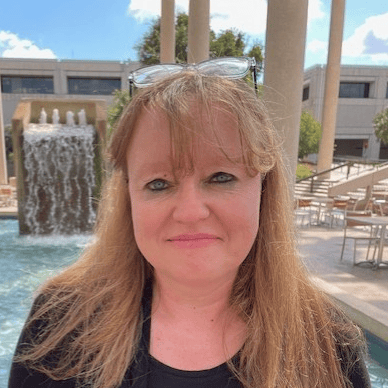
Andria Crosson
Andria Crosson, University of Texas at San Antonio
Andria Crosson’s teaching journey has led her from lecturer I to professor of practice at the University of Texas at San Antonio. Her syllabi showcase a variety of tasks meant to support her student population—often first-generation and bilingual college students—in understanding not just the content of history but how to be a historian. In teaching the capstone course to preservice teachers, Crosson has sought to help her department—and her students—by seeking additional certifications that expand course delivery modality. Moreover, the websites and materials Crosson collaborated on in the Seeds of Texas project further emphasize the skills and modalities she brings to the work of teaching history. Andria Crosson is truly deserving of recognition as a distinguished teacher.
EQUITY AWARD (INSTITUTIONAL)

Grambling State University Department of History
Grambling State University Department of History
We commend Grambling State University’s Department of History for initiating a department-wide program that pairs digital humanities and African American studies to impact the wider community. Because of extramural funding, Grambling has secured equipment to teach its students archival, library, and oral history skills alongside digital technologies. This initiative also led to new secondary concentrations to meet student demand for additional vocational skills and pathways that complement the history major. Since 2020, Grambling has witnessed a 300 percent increase in history graduates.
HERBERT FEIS AWARD IN PUBLIC HISTORY
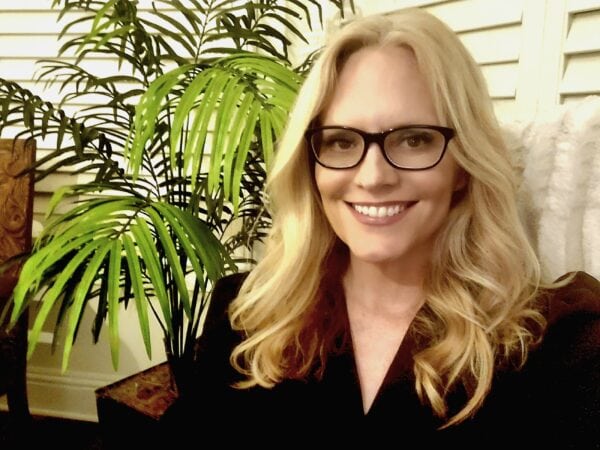
Erin Kimmerle
Erin Kimmerle, University of South Florida
Erin Kimmerle makes an impressive contribution to public history through the What Lies Beneath project. Using interdisciplinary methods, she uncovered 45 burial grounds, half African American, that had been lost to memory. A museum exhibit, to which her students contributed, told the story of these cemeteries to community members, connecting her discoveries to intimate familial stories. She provides a model for other communities seeking to tell the story of predatory land practices while providing a way to honor a community’s ancestors.
JOHN LEWIS AWARD FOR HISTORY AND SOCIAL JUSTICE
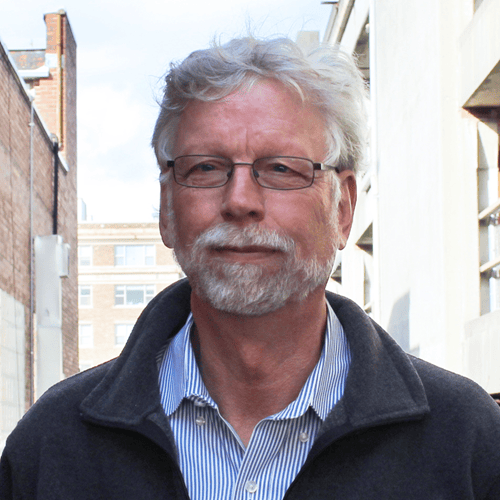
James N. Gregory
James N. Gregory, University of Washington
James N. Gregory’s scholarship in labor and migration history, his prolific public history work, his co-founding of the Civil Rights and Labor History Consortium, and his nearly 20 years of leadership in building out this latter project have helped to illustrate the kinds of profoundly productive connections possible for scholars to make among historical inquiry, civil society, and public policy. In one of the signal accomplishments of his work, Gregory’s leadership in documenting the scope and impact of racial covenants and discriminatory housing practices in the Pacific Northwest helped lead to legislation in Washington state aimed at compensating victims of racist housing policies and customs in the region. His work demonstrates how a historian can inform a public debate and enter it with a researcher’s tools and insights. Gregory’s scholarship, teaching, public history, and deep public engagement in important urban and national policy questions highlight how rigorous history and its powerful presentation can help lead to justice.
JOHN LEWIS AWARD FOR PUBLIC SERVICE TO THE DISCIPLINE OF HISTORY
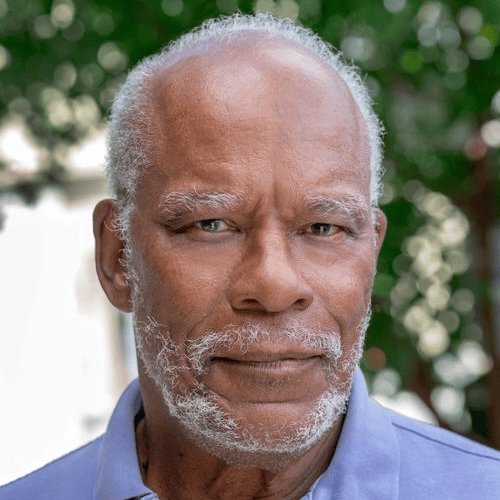
Stanley Nelson
Stanley Nelson, Firelight Media
The breadth and depth of Stanley Nelson’s vast corpus of documentary films is stunning. He easily ranks among the most influential documentary filmmakers in the United States. Few others match his intellectual breath and vision. Those who have viewed all or even a substantial portion of these films would hardly be surprised that he has won a National Humanities Medal, five Emmys, two Peabodys, two awards each from the Sundance Film Festival and International Documentary Association, the Directors Guild Award for Outstanding Directorial Achievement in Documentary, and a MacArthur Foundation Fellowship.
Nelson’s most acclaimed work has focused on a wide scope of aspects of African American history and life. He has made films on the Black press, Marcus Garvey, the murder of Emmett Till, the Freedom Riders, Freedom Summer, the Black Panthers, Attica, historically Black colleges and universities, Miles Davis, and, more recently, the contested issues of policing in Black communities.
Nelson has not limited himself to African American history, however. He also has produced films on the current crisis in immigration, Wounded Knee, and the Jonestown cult suicides.
The careful and extensive historical grounding of these films has led American historians to bring this work to their classrooms. They challenge students to consider the complexities of social movements and expose them to hard truths about the American criminal justice system, while at the same time exposing students to contributions of African Americans to broad currents of American history.
The AHA especially appreciates Nelson’s ability to create films that translate often difficult and painful historical issues into a medium accessible to broad audiences. It seems fitting to honor him with an award named for John Lewis, who devoted his life to the social movement that Nelson has so brilliantly and sensitively portrayed. Like Lewis, Nelson brings to his work respect for the courage and humanity of those who have struggled to confront this country’s difficult past and to make it a more just and egalitarian society.
NANCY LYMAN ROELKER MENTORSHIP AWARD
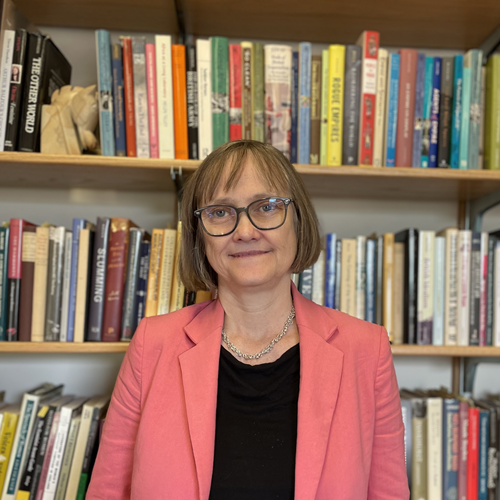
Susan Pedersen
Susan Pedersen, Columbia University
Susan Pedersen’s graduate students and colleagues agree that she is a gifted, generous, and gracious mentor. A superb undergraduate lecturer who readily offers engaged office hours to freshmen and seniors alike, her originality as a graduate instructor truly sets her apart. She is the moving spirit behind the New York–Cambridge Training Collaboration in Twentieth-Century British History, a program known for its rigor and intellectual openness. Her mentorship of early career scholars has been invaluable, especially since she is especially attuned to their individual needs. Her students seek her advice concerning their forthcoming publications for decades after attending her graduate seminar. In sum, she is an astute presence across their entire careers as historians.
TIKKUN OLAM PRIZE FOR PROMOTING PUBLIC HISTORICAL LITERACY
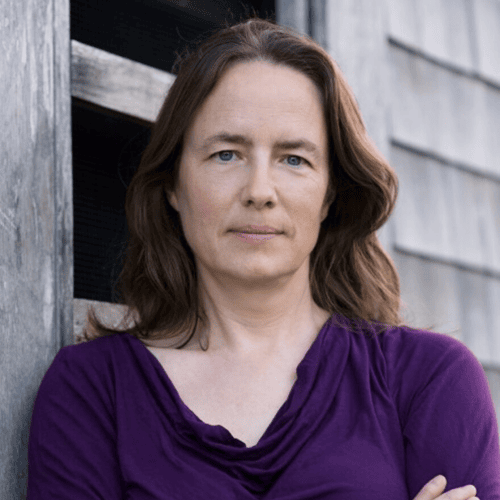
Heather Cox Richardson
Heather Cox Richardson, Boston College
In January 2017, Heather Cox Richardson began publishing carefully researched, historically informed daily commentaries on current events, focused especially on government and politics. The initial venue was Facebook, and the audience grew quickly as the posts—also available directly via email—integrated historical context with the application of historical thinking to contemporary issues. Richardson’s commitment to crisp, clear prose and disciplined brevity (nearly all posts are 1,200–1,400 words) have enabled her to engage a vast audience in a manner that teaches without being didactic, analyzes without sacrificing narrative, and reminds readers why historical knowledge and thinking are imperative to understanding all aspects of public life.
The impact and reach of Richardson’s scholarship reminds all historians how important—and how possible—it is to have a broad public impact. Letters from an American reaches more than 1.4 million subscribers; by some metrics, it is the most widely read Substack newsletter in the world, ahead of publications with dozens of staff. Richardson’s Facebook page, which still reposts Letters, has 1.8 million followers; an unofficial Facebook fan group has nearly 40,000 members. She also produces a daily podcast on each letter, has co-hosted additional podcasts with journalist Ron Suskind and historian Joanne Freeman, and in 2023 published Democracy Awakening: Notes on the State of America, a book based on Letters that reached number four on the New York Times bestseller list.
The Tikkun Olam Prize honors our colleagues who have “sustained historical work that contributes significantly to historical literacy.” A through line—and arguably motivation—of Richardson’s work is the democratization of historical knowledge and understanding. Each of these short essays, by example, promotes historical method as a model for democratic engagement. Richardson’s readers learn that people make history, and that, by carefully examining the historical context and the empirical evidence, anyone can use their knowledge of history to help make history.
2024 AWARDS FOR PUBLICATIONS
HERBERT BAXTER ADAMS PRIZE IN EUROPEAN HISTORY
Alexander Statman
A Global Enlightenment: Western Progress and Chinese Science (Univ. of Chicago Press, 2023)
With elegance, subtlety, rigor, and concision, Alexander Statman tells the unknown story of the European Enlightenment’s sustained and shifting engagement with Chinese science. Presenting both a model for and an illustration of global history, Statman focuses on a set of thinkers—whom he calls “orphans of the Enlightenment”—who challenge the idea that the European Enlightenment was essentially European. This book will shift the way we teach global intellectual history.
AHA PRIZE IN EUROPEAN INTERNATIONAL HISTORY
Chelsea Schields, University of California, Irvine
Offshore Attachments: Oil and Intimacy in the Caribbean (Univ. of California Press, 2023)
Chelsea Schields’s groundbreaking book remaps the history of global capitalism around the 20th-century Dutch Caribbean and in so doing reframes European history. Schields uses sources in five languages to reveal how sex and race organized the production of oil and shaped a dynamic transnational labor market. Bringing together histories of slavery, the environment, and queer life, Schields moves between Europe and the Caribbean to tell a captivating story of imperialism and its legacies.
AHA PRIZE IN HISTORY PRIOR TO CE 1000
Julia Kelto Lillis, Union Theological Seminary in the City of New York
Virgin Territory: Configuring Female Virginity in Early Christianity (Univ. of California Press, 2023)
In a sweeping intellectual history of Greco-Roman, Jewish, and early Christian evidence, Julia Kelto Lillis argues that from among numerous Mediterranean understandings of virginity, emphasizing moral or spiritual dimensions, a Christian discourse that focused heavily on the hymen and physiological inspection came to the fore in the late fourth and fifth centuries CE. Mapping this “virgin territory” in the past, she reminds us that such discourses, across their cycles of salience, continue to regulate women’s lives today.
JERRY BENTLEY PRIZE IN WORLD HISTORY
Sureshkumar Muthukumaran, National University of Singapore
The Tropical Turn: Agricultural Innovation in the Ancient Middle East and the Mediterranean (Univ. of California Press, 2023)
Sureshkumar Muthukumaran’s ambitious examination of the multidirectional circulation of crops and fauna from South Asia to the Middle East and Mediterranean offers a groundbreaking environmental history of the long-distance connections that webbed the ancient world. Marshaling an impressive array of archaeological and historical evidence, in a variety of ancient languages, this extraordinary work allows us to reconceptualize antiquity within the framework of world history and pushes us to expand our chronologies of global interconnection.
BEVERIDGE FAMILY PRIZE IN AMERICAN HISTORY
Dylan C. Penningroth, University of California, Berkeley
Before the Movement: The Hidden History of Black Civil Rights (Liveright, 2023)
A stunningly transformative book, Before the Movement is social history at its best. Scouring long-overlooked archives across the nation, Dylan C. Penningroth transforms our understanding of slavery, Jim Crow, and civil rights—showing how Black Americans took control of their lives through legal privileges. With crisp prose, elegant argumentation, and a clear-eyed view of past humanity on its own terms, he demonstrates how the law became the medium through which Black political and social life was formed.
PAUL BIRDSALL PRIZE IN EUROPEAN MILITARY AND STRATEGIC HISTORY
Nicholas Mulder, Cornell University
The Economic Weapon: The Rise of Sanctions as a Tool of Modern War (Yale Univ. Press, 2022)
Drawing on sources from five countries, Nicholas Mulder’s The Economic Weapon brilliantly weaves together political, economic, and military history to reveal the origins of economic sanctions, a controversial tool of statecraft that remains widely practiced in the 21st century. Mulder’s argument that sanctions often had harsh unintended consequences merits the careful attention of scholars in a range of fields. Elegantly written and sharply argued, the book represents international history at its best.
ALBERT B. COREY PRIZE IN CANADIAN–AMERICAN RELATIONS
Donald Harman Akenson, Queen’s University
The Americanization of the Apocalypse: Creating America’s Own Bible (Oxford Univ. Press, 2023)
In a strongly transnational work, Donald Harman Akenson examines the migration of individuals and religious ideas from Britain and Ireland to Canada and the United States, while also paying attention to the significance of topography and geography in the creation of networks that fostered the spread and popular impact of evangelical and apocalyptic Christian ideas. The book is highly readable, even amusing in places. It promises to spark debates about the historical, geographical, and theological shaping of American fundamentalist Christianity.
RAYMOND J. CUNNINGHAM PRIZE FOR UNDERGRADUATE JOURNAL ARTICLE
Becca De Los Santos, Emory University
“Inversion of the Top-Down Operation: Enslaved Voices and French Abolitionism in 1840s Senegal,” Herodotus 34 (Spring 2024)
Faculty adviser: Richard Roberts, Stanford University
Becca De Los Santos’s impressive research in Senegal and France provides a nuanced view on the liberation of enslaved people in the French colony of Senegal. Using testimony from an 1844 commission report, De Los Santos puts the previously ignored voices of those enslaved in Senegal at the forefront of abolition. They proved to French authorities that instead of being a “benign” system, enslaved people in Senegal longed for freedom.
PATRICIA BUCKLEY EBREY PRIZE IN EAST ASIAN HISTORY
Elad Alyagon, independent scholar
Inked: Tattooed Soldiers and the Song Empire’s Penal-Military Complex (Harvard Univ. Asia Center, 2023)
Inked tells the story of the millions of soldiers who were conscripted or coerced into the Song military. Setting up tattooed soldiers as the forgotten counterpoint of the officials recruited through the examination system, Elad Alyagon draws new stories out of a historical record dominated by elite voices. His direct and engaging prose guides readers through the social world of Song soldiers, expanding our understanding of a pivotal period of state building and social mobilization in Chinese history.
JOHN K. FAIRBANK PRIZE IN EAST ASIAN HISTORY
Tristan G. Brown, Massachusetts Institute of Technology
Laws of the Land: Fengshui and the State in Qing Dynasty China (Princeton Univ. Press, 2023)
Laws of the Land is grounded in archival research and beautifully written. By weaving together concepts as seemingly disparate as fengshui and institutional legal history, Tristan G. Brown opens a window on Qing society from the grassroots to halls of power, from practices as mundane as grave digging to as profound as predicting the future. Through local magistrates, powerful gentry, peasants, farmers, and imperial officials, Brown tells a story of how the Qing dynasty moved between tradition and modernity.
MORRIS D. FORKOSCH PRIZE IN BRITISH HISTORY
Andrew Seaton, University College London
Our NHS: A History of Britain’s Best-Loved Institution (Yale Univ. Press, 2023)
This study is a brilliant, historically astute, and highly readable assessment of how Britain’s National Health Service managed to adhere to social democratic principles from the 1950s through the 1970s, then somehow survived the onslaught of privatization during and after Margaret Thatcher’s tenure as prime minister. But it’s not a rosy hagiography of one ideological victory among losses. As a human-centered account of an institution, it is both nuanced and deeply engaging.
LEO GERSHOY AWARD IN WESTERN EUROPEAN HISTORY
Vera Keller, University of Oregon
The Interlopers: Early Stuart Projects and the Undisciplining of Knowledge (Johns Hopkins Univ. Press, 2023)
Vera Keller’s brilliant and deeply researched work forces us to rethink long-held assumptions about 17th-century science. Focusing on a diverse cast of characters engaged in “interloping”—deftly leaping from one area of study or business activity to another—Keller turns our attention away from a tidy or contained Scientific Revolution and reveals in its place a rambunctious arena of risky and often violent endeavors.
WILLIAM AND EDWYNA GILBERT AWARD FOR THE BEST ARTICLE ON TEACHING HISTORY
Jocelyn Isabel Aguilera, John C. Fremont High School and California State University, Long Beach
“Reclaiming Narratives Through Culturally Sustaining Teaching: Women of Color, Historical Significance, and the Civil Rights Era,” The History Teacher 56, no. 3 (May 2023)
One obstacle many minoritized and female students face in the secondary school history classroom is the inability to see themselves in history. Jocelyn Isabel Aguilera’s article explores an intervention designed to draw students into a deeper historical understanding of the role played by African American women in the Civil Rights Movement. Aguilera’s pedagogy was not simply aimed at including new content but in using that content to engage students in deeper historical thinking and to encourage them to take a more activist stance.
FRIEDRICH KATZ PRIZE IN LATIN AMERICAN AND CARIBBEAN HISTORY
Yanna Yannakakis, Emory University
Since Time Immemorial: Native Custom and Law in Colonial Mexico (Duke Univ. Press, 2023)
This sophisticated book investigates how Spanish colonial laws and Indigenous customs informed one another in postconquest Mexico. Yanna Yannakakis’s meticulous reading of primary sources and deft theoretical understanding of legal traditions and procedures allow her to make an eminently persuasive argument about how imperial laws were not imposed from above but (re)built and (re)imagined locally. The productive marriage of legal and social histories in this well-crafted book will significantly influence Latin American history.
JOAN KELLY MEMORIAL PRIZE IN WOMEN’S HISTORY
Chelsea Schields, University of California, Irvine
Offshore Attachments: Oil and Intimacy in the Caribbean (Univ. of California Press, 2023)
Chelsea Schields’s brilliant debut is a deeply researched and thoughtfully argued examination of the oil industry’s profound impact on society in the Dutch islands of Aruba and Curaçao. Her analysis offers a provocative and nuanced discussion of how island women responded to the industry’s attempts to influence their home lives, sexuality, and reproductive choices. In exploring this largely untold history, Schields provides critical context for understanding the role of race and gender in the global expansion of international corporations during the 20th century—and how those dynamics continue to play out in our own time.
MARTIN A. KLEIN PRIZE IN AFRICAN HISTORY
Rachel Jean-Baptiste, Stanford University
Multiracial Identities in Colonial French Africa: Race, Childhood, and Citizenship (Cambridge Univ. Press, 2023)
Rachel Jean-Baptiste’s groundbreaking book offers a richly textured exploration of an understudied category of historical actors in colonial French Africa. It examines how race and racial formations were made and reconfigured in the lives of multiracial individuals and groups across a broad spectrum of contested social arenas and geographic spaces. Drawing on a diverse set of archives, this layered and ambitious study offers original insights into identity formation and belonging in African and global history.
LITTLETON–GRISWOLD PRIZE IN AMERICAN LAW AND SOCIETY
Dylan C. Penningroth, University of California, Berkeley
Before the Movement: The Hidden History of Black Civil Rights (Liveright, 2023)
This is an epic study that revolutionizes our understanding of how Black Americans interacted with legal institutions from the time of slavery to the 1960s. By revealing civil rights as “rights of everyday use,” Dylan C. Penningroth underscores Black Americans’ legal savvy while registering the deeply human relations embedded in laws of property, contract, families, and associations. Based on ingenious research in civil court records and written in vibrant prose, this is a pathbreaking work.
J. RUSSELL MAJOR PRIZE IN FRENCH HISTORY
Sara E. Johnson, University of California, San Diego
Encyclopédie Noire: The Making of Moreau de Saint-Méry’s Intellectual World (Univ. of North Carolina Press, 2023)
Sara E. Johnson’s pathbreaking “collective biography” of the enslaved and free people of color surrounding a renowned Saint-Domingue enslaver-intellectual provides an innovative way of approaching Enlightenment-era texts. Deploying experimental methods with extraordinary effect, this deeply researched, magisterial book promises to transform our understanding of early modern intellectual production and our approach to historical sources, while also providing a new template for histories of the Francophone Caribbean and the Age of Revolutions.
HELEN & HOWARD R. MARRARO PRIZE IN ITALIAN HISTORY
Massimo Mazzotti, University of California, Berkeley
Reactionary Mathematics: A Genealogy of Purity (Univ. of Chicago Press, 2023)
Massimo Mazzotti’s work examines how something as “objective” as mathematics can be politicized and reveals, in turn, how political discourse can affect (and be affected by) academic and scholarly debates. His analysis of “Mathematics at the Barricades,” for instance, details the intersections of Neapolitan Jacobinism and science. Combining splendid research with lucid presentation, Mazzotti renders a chaotic era and a daunting subject into a marvelously learned yet accessible book.
GEORGE L. MOSSE PRIZE IN EUROPEAN INTELLECTUAL AND CULTURAL HISTORY
Ari Joskowicz, Vanderbilt University
Rain of Ash: Roma, Jews, and the Holocaust (Princeton Univ. Press, 2023)
Ari Joskowicz compellingly writes about the intertwined histories of Romani and Jewish communities during and after World War II. It is an impressively written book on Hitler’s forgotten victims and their relationship with Jews for reparative justice, recognition, and remembrance. Expansive in its scope, the author challenges us to reconsider Romani–Jewish relations and the contours of Holocaust memory in both the past and present.
JOHN E. O’CONNOR FILM AWARD
Documentary: The Lady Bird Diaries
Dawn Porter, director; Kim Reynolds, producer (Trilogy Films, 2023)
Presidential spouse Lady Bird Johnson’s influence on public life and policy issues in the turbulent 1960s is revealed in Dawn Porter’s fascinating documentary. Drawing from Julia Sweig’s research into 120 hours of extraordinary audio journals taped by the First Lady to record the Johnsons’ years in the White House, Porter uncovers Lady Bird’s passion to protect the environment, her tart observations on the Washington scene, and her thoughtful insights as LBJ’s closest adviser.
EUGENIA M. PALMEGIANO PRIZE IN THE HISTORY OF JOURNALISM
Kathryn Cramer Brownell, Purdue University
24/7 Politics: Cable Television and the Fragmenting of America from Watergate to Fox News (Princeton Univ. Press, 2023)
Kathryn Cramer Brownell offers an important analysis of the origins of our fractured and fractious media environment in her excellent book. She traces television’s role in political party strategies from Richard Nixon’s understanding of the impact of early cable networks to the politicization of individual news networks that fractured and divided viewing audiences in the 1990s. Brownell deftly shows readers how media companies, politicians, and news celebrities made money and created devoted, cultlike audiences that would challenge decades-old democratic norms in the age of Donald Trump.
JAMES A. RAWLEY PRIZE IN ATLANTIC HISTORY
Nicholas Radburn, Lancaster University
Traders in Men: Merchants and the Transformation of the Transatlantic Slave Trade (Yale Univ. Press, 2023)
By dominating the 18th-century Atlantic slave trade, British merchants traveled from the margins to the center of British society. This meticulously researched and powerfully written book weaves their stories with those of middlemen and the enslaved, moving deftly from Liverpool to West Africa to the Americas. Nicholas Radburn provides an unmatched demonstration of the strategic calculations by which these “traders in men” derived newfound wealth and power from the consignment of Africans to lives of bondage.
PREMIO DEL REY IN EARLY SPANISH HISTORY
Abigail Krasner Balbale, New York University
The Wolf King: Ibn Mardanīsh and the Construction of Power in al-Andalus (Cornell Univ. Press, 2023)
Abigail Krasner Balbale’s study explores the life and lasting legacy of Andalusī ruler Ibn Mardanīsh. Drawing on Latin and Arabic literary, administrative, and material sources, Balbale demonstrates what his rule and identity signified for medieval Christian and Muslim rulers within the Islamicate world and Iberian borderlands, thereby pushing against past scholarly tendencies to oversimplify the Christian–Muslim divide. Balbale shows how later generations refashioned their accounts of Ibn Mardanīsh to bolster their historical memories of al-Andalus as they grappled with Islam’s relation to the West, definitions of race, and models of rulership.
JOHN F. RICHARDS PRIZE IN SOUTH ASIAN HISTORY
Divya Cherian, Princeton University
Merchants of Virtue: Hindus, Muslims, and Untouchables in Eighteenth-Century South Asia (Univ. of California Press, 2023)
Divya Cherian persuasively argues that as 18th-century Marwari merchants connected with globalized dynamics of trade and finance, they allied with Marwar/Jodhpur elites to enforce social distinctions of “embodied difference” expressed in dietary and caste terms. An emergent elite “Hinduness” defined itself against an “untouchable” populace that included Muslims, before any later colonial influences. Cherian interprets regional court rulings and orders with sophisticated scholarship to illuminate how power reshaped local social identities, a process that resonates across India today.
JAMES HARVEY ROBINSON PRIZE FOR TEACHING AIDS
Bruce Allyn Lesh, Carroll County Public Schools
Developing Historical Thinkers: Supporting Historical Inquiry for All Students (Teachers Coll. Press, 2023)
Complaints abound that history teaching is deadly dull. This book will give it new life. Bruce Allyn Lesh offers ingenious strategies and thoughtful reflections for revitalizing our classes. He shows, for example, how students can study labor history by holding a mock congressional hearing on the Pullman strike of 1894 or discuss queer activism by exploring primary sources on the Lavender Scare of the 1950s. Wise social studies directors will make Lesh’s book the focus of professional development, and even college teachers will discover new ways to address hard histories and embrace active learning.
DOROTHY ROSENBERG PRIZE IN HISTORY OF THE JEWISH DIASPORA
Rebekka Voß, Goethe-Universität Frankfurt
Sons of Saviors: The Red Jews in Yiddish Culture (Univ. of Pennsylvania Press, 2023)
Sons of Saviors is masterful in breadth and depth, tracing the evolving versions of the myth of Red Jews over centuries and continents. Yiddish culture reimagined the original anti-Jewish myth as a story of Jewish strength, intellectual superiority, and moral virtue across the Yiddish-speaking world from eastern Europe to Palestine and the United States. This tightly focused, well-written book is a fascinating read on diaspora dynamics with insights on the sensory.
ROY ROSENZWEIG PRIZE FOR CREATIVITY IN DIGITAL HISTORY
Christopher Marsh, Queen’s University of Belfast; Angela McShane, University of Warwick; Andy Watts, Carnival Band; and their technical team, project musicians, and research assistants
100 Ballads (Digital Humanities Inst., 2023)
100 Ballads collects politically and culturally rich street songs from the 17th century. The easily navigated and unpretentious site presents the lyrics, the accompanying woodcut illustrations, and in many cases the music, sung and accompanied by professional musicians. The transcribed text allows searching by subject, and each song is accompanied by an essay on its origins. The site offers a valuable and evocative resource for scholars and teachers that makes good use of new media.
SINCLAIR PRIZE FOR HISTORICAL PODCASTS
Andrew J. Falk, Christopher Newport University
Past Is Prologue Podcast
Past Is Prologue impressed the committee with its appeal to a nonprofessional audience, its incorporation of historical questions and processes, and its inclusion of topics and approaches that are likely to be new to its listeners. Covering disparate timely topics, this podcast captures the often-enchanting nature of primary sources and is thoroughly grounded in scholarship. It is well produced and an edifying pleasure to hear.
WESLEY-LOGAN PRIZE IN AFRICAN DIASPORA HISTORY
Joan Flores-Villalobos, University of Southern California
The Silver Women: How Black Women’s Labor Made the Panama Canal (Univ. of Pennsylvania Press, 2023)
The Silver Women offers a new interpretation of life within the Panama Canal Zone and its margins through an incisive examination of Black West Indian women’s entrepreneurship, community building, and social reproduction. Using a theoretically sophisticated approach, Joan Flores-Villalobos excavates the untold story of historical subjects who have been marginalized in the making of the Panama Canal, moving West Indian women to the core of an enduring central theme in the history of the African diaspora—labor migration.
This work is licensed under a Creative Commons Attribution-NonCommercial-NoDerivatives 4.0 International License. Attribution must provide author name, article title, Perspectives on History, date of publication, and a link to this page. This license applies only to the article, not to text or images used here by permission.



